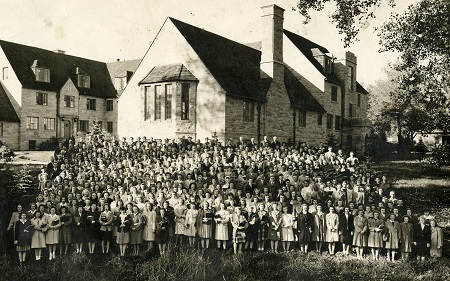 In the midst of World War II Concordia College adapted to wartime restrictions and decreasing enrollment. Due to the military draft the number of male students enrolled dropped, while the number of females attending the college increased dramatically. Accordingly, Concordia established programs and courses that allowed and encouraged women to contribute to the war effort. In the midst of World War II Concordia College adapted to wartime restrictions and decreasing enrollment. Due to the military draft the number of male students enrolled dropped, while the number of females attending the college increased dramatically. Accordingly, Concordia established programs and courses that allowed and encouraged women to contribute to the war effort.
|
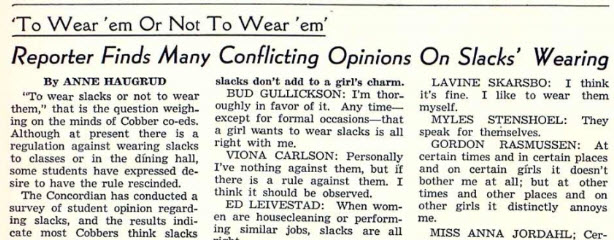 Double standards in the regulation of student conduct at Concordia College placed the liberties of women below those of men. Dress codes and smoking policies in particular explicitly treated female students differently than male students. A combination of student action as well as changing social views brought an end to these sexist differences in regulation over the course of the 1960s and 1970s. Double standards in the regulation of student conduct at Concordia College placed the liberties of women below those of men. Dress codes and smoking policies in particular explicitly treated female students differently than male students. A combination of student action as well as changing social views brought an end to these sexist differences in regulation over the course of the 1960s and 1970s.
|
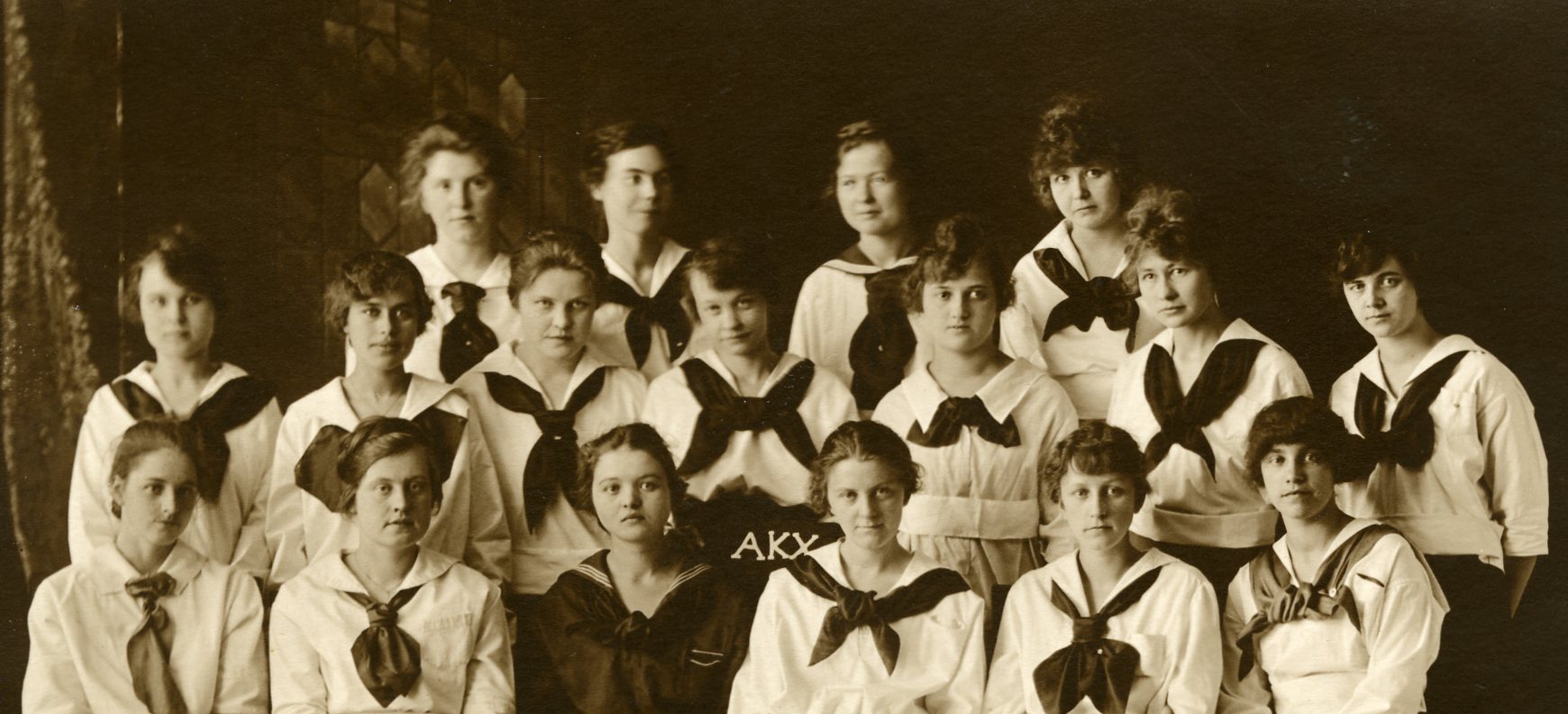 Literary societies were once a common feature at Concordia. Alpha Kappa Chi (AKX) was the first all-female literary society at the college. Even as its focus shifted from literary pursuits to social events to charitable activities, AKX provided a way for Concordia women to engage with their campus and their community for over eighty years. Phi Kappa Chi (PKX) was another major women’s society at Concordia College from 1946 to 1969. Although PKX was relatively short-lived, it provides an interesting look at some of the factors that influenced the rise and fall of women’s (and men’s) societies at Concordia. Literary societies were once a common feature at Concordia. Alpha Kappa Chi (AKX) was the first all-female literary society at the college. Even as its focus shifted from literary pursuits to social events to charitable activities, AKX provided a way for Concordia women to engage with their campus and their community for over eighty years. Phi Kappa Chi (PKX) was another major women’s society at Concordia College from 1946 to 1969. Although PKX was relatively short-lived, it provides an interesting look at some of the factors that influenced the rise and fall of women’s (and men’s) societies at Concordia.
|
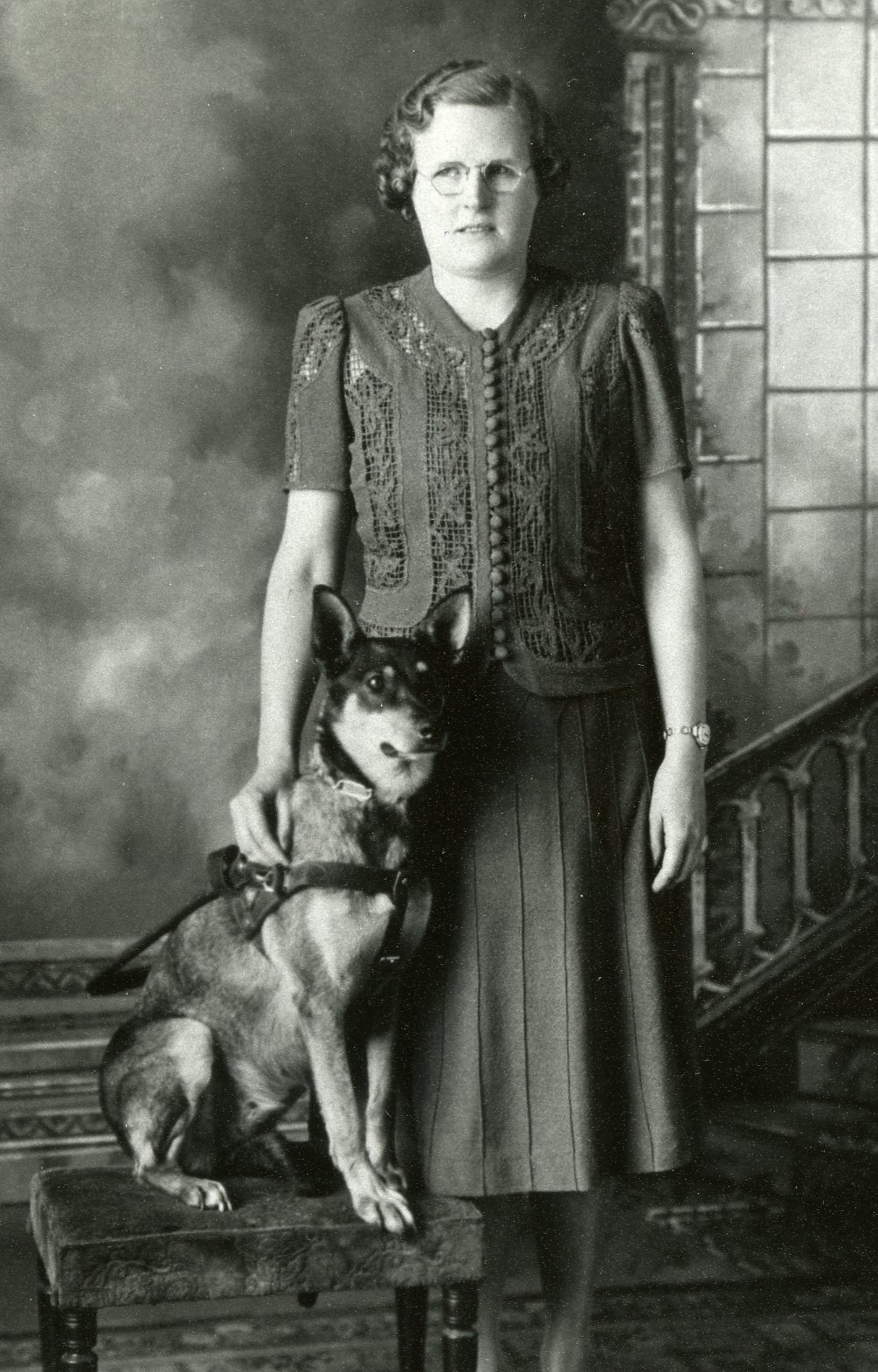 A promising scholar and person of faith, Viola Eid accomplished much both as a Concordia student and in the years following her graduation. In addition to her academic achievements, her life serves as inspiration for people dealing with blindness or other disabilities. A promising scholar and person of faith, Viola Eid accomplished much both as a Concordia student and in the years following her graduation. In addition to her academic achievements, her life serves as inspiration for people dealing with blindness or other disabilities.
|
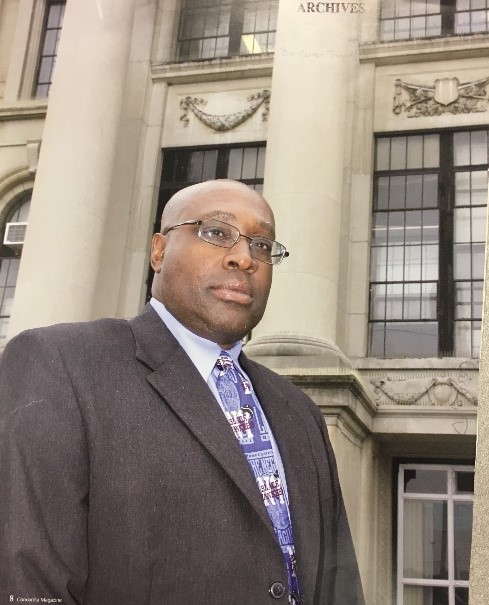 Darnell Carter attended Concordia College from 1971-1975 after growing up in Springfield, Ohio. He became involved in several organizations including Alpha Epsilon Sigma, the Concordian, and Harambee Weuse, the Black Student Union. Graduating from Concordia with degrees in history and English literature, Carter went on to study at Drake University Law School. He enjoyed a successful law career as an assistant prosecuting attorney for Clark County, Ohio from 1980-2008. Carter has also taught high school English, earned a master’s degree in history from Ohio State, and in 2018 received Concordia’s Alumni Achievement Award. Darnell Carter attended Concordia College from 1971-1975 after growing up in Springfield, Ohio. He became involved in several organizations including Alpha Epsilon Sigma, the Concordian, and Harambee Weuse, the Black Student Union. Graduating from Concordia with degrees in history and English literature, Carter went on to study at Drake University Law School. He enjoyed a successful law career as an assistant prosecuting attorney for Clark County, Ohio from 1980-2008. Carter has also taught high school English, earned a master’s degree in history from Ohio State, and in 2018 received Concordia’s Alumni Achievement Award.
|
 Eric Fontaine attended Concordia College during a period of dramatic racial change in higher education, matriculating in 1970 and graduating in 1974. Stepping from the nation’s capital, Fontaine asserted himself on campus through multiple extra-curricular involvements and leadership positions. He served as a guest editorialist for the student paper and as copy editor of the yearbook. In 1973, Fontaine became the first African American student in the college’s history to be elected Student Association president. Following graduation, Fontaine went on to pursue a wide-ranging career as a human resources professional, providing diversity expertise through consulting, coaching, teaching, and training in industry, government, and higher education. Eric Fontaine attended Concordia College during a period of dramatic racial change in higher education, matriculating in 1970 and graduating in 1974. Stepping from the nation’s capital, Fontaine asserted himself on campus through multiple extra-curricular involvements and leadership positions. He served as a guest editorialist for the student paper and as copy editor of the yearbook. In 1973, Fontaine became the first African American student in the college’s history to be elected Student Association president. Following graduation, Fontaine went on to pursue a wide-ranging career as a human resources professional, providing diversity expertise through consulting, coaching, teaching, and training in industry, government, and higher education.
|
 Born in Norfolk, Virginia, Earl Lewis came of age during the hard struggle for school integration in the South, and nationwide, that followed the landmark Brown v. Board of Education decisions (1954-1955). When Lewis studied at Concordia College between 1974 and 1978, the Civil Rights, Black Power, and Black Student Movements had already instigated momentous racial reform in the country’s colleges and universities. He participated in the Black Student Strike in the spring of 1976, a memorable marker in Concordia’s history as black student enrollments reached high tide before receding. Lewis’s academic achievements as an undergraduate anticipated a storied career as a scholar, administrator, innovator and entrepreneur, and leader in higher education. Serious and steady, yet affable and down-to-earth, Lewis embodies Concordia’s commitment to influence the world through studied preparation and dedicated service. Recipient of countless honors and awards, Lewis joined the college’s Board of Regents in 2008 and became chair in 2018. Born in Norfolk, Virginia, Earl Lewis came of age during the hard struggle for school integration in the South, and nationwide, that followed the landmark Brown v. Board of Education decisions (1954-1955). When Lewis studied at Concordia College between 1974 and 1978, the Civil Rights, Black Power, and Black Student Movements had already instigated momentous racial reform in the country’s colleges and universities. He participated in the Black Student Strike in the spring of 1976, a memorable marker in Concordia’s history as black student enrollments reached high tide before receding. Lewis’s academic achievements as an undergraduate anticipated a storied career as a scholar, administrator, innovator and entrepreneur, and leader in higher education. Serious and steady, yet affable and down-to-earth, Lewis embodies Concordia’s commitment to influence the world through studied preparation and dedicated service. Recipient of countless honors and awards, Lewis joined the college’s Board of Regents in 2008 and became chair in 2018.
|
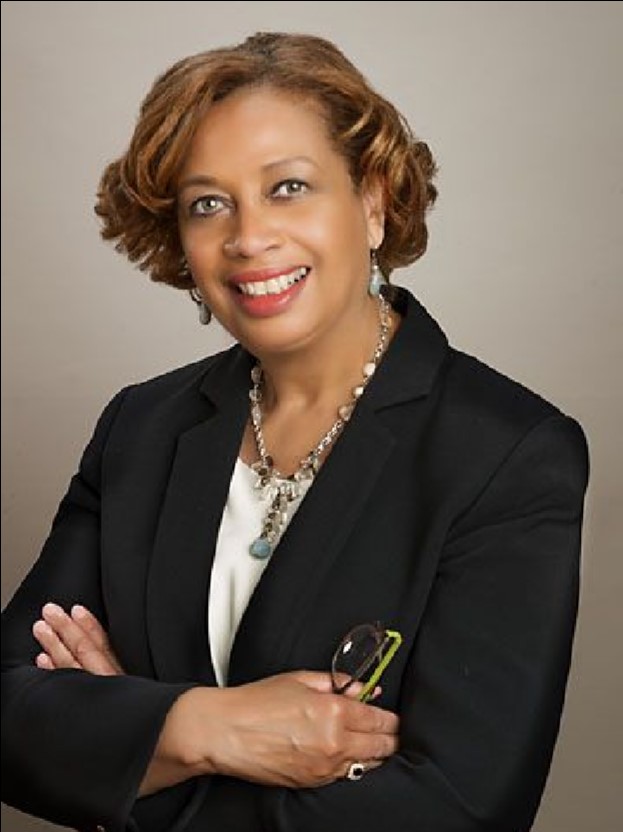 Born in La Porte, Indiana, offspring of a Lutheran household, Fay Holmes-Ferguson followed her faith tradition in attending Concordia College. As changes set in motion by the Civil Rights and Black Student Movements rippled through higher education, Holmes joined the first cohort of African American students on Concordia’s largely white campus. She graduated magna cum laude, going on to earn an M.B.A. degree from Indiana University. Holmes-Ferguson followed a successful career in advertising, eventually being named co-CEO at Burrell Communications Group, Chicago, Illinois. Ferguson joined Concordia’s Board of Regents in 2012. In 2016, Fay saw a need and felt compelled to create the Diversity Student Endowed Scholarship which she co-founded with Concordia alumnus Dr. Earl Lewis '78. The goal of the scholarship fund is twofuld: to encourage students from diverse backgrounds to attend a quality liberal arts college and to increase the diversity of experiences represented on Concordia's campus. A gifted executive and community leader, Ferguson’s core life motto of leading a purpose-driven life focused on helping others, exemplifies the spirit and mission of Concordia College. Born in La Porte, Indiana, offspring of a Lutheran household, Fay Holmes-Ferguson followed her faith tradition in attending Concordia College. As changes set in motion by the Civil Rights and Black Student Movements rippled through higher education, Holmes joined the first cohort of African American students on Concordia’s largely white campus. She graduated magna cum laude, going on to earn an M.B.A. degree from Indiana University. Holmes-Ferguson followed a successful career in advertising, eventually being named co-CEO at Burrell Communications Group, Chicago, Illinois. Ferguson joined Concordia’s Board of Regents in 2012. In 2016, Fay saw a need and felt compelled to create the Diversity Student Endowed Scholarship which she co-founded with Concordia alumnus Dr. Earl Lewis '78. The goal of the scholarship fund is twofuld: to encourage students from diverse backgrounds to attend a quality liberal arts college and to increase the diversity of experiences represented on Concordia's campus. A gifted executive and community leader, Ferguson’s core life motto of leading a purpose-driven life focused on helping others, exemplifies the spirit and mission of Concordia College.
|
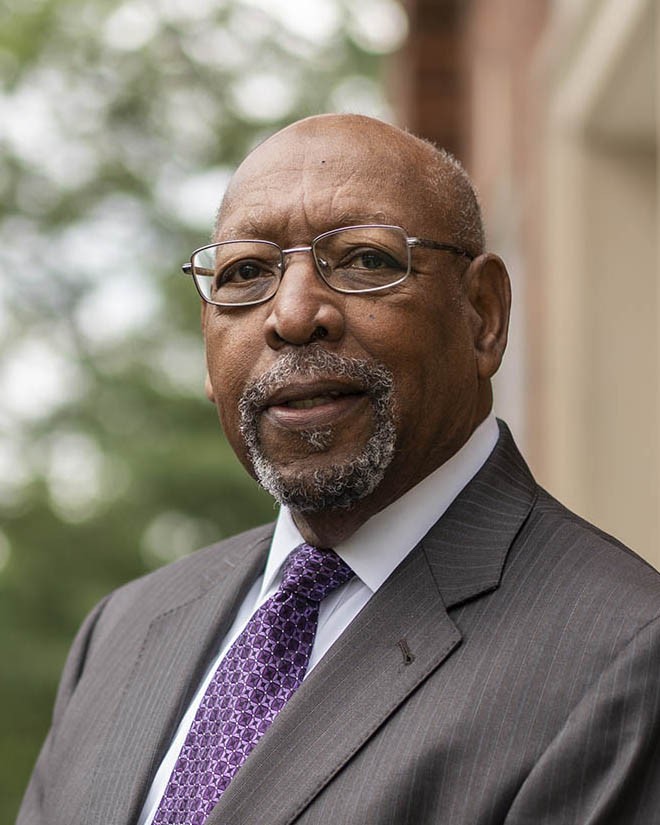 A native of Louisville, Kentucky, Richard Green attended Concordia College during the tumult and excitement of the early modern Civil Rights Movement, becoming the college’s first African American graduate in 1961. A chemistry major, Green went on to earn a master’s degree in science at North Dakota State University (1963) and his PhD in the field of inorganic chemistry at the University of Louisville (1969). In 1964, Green married Dorothy Reed and began work at a chemical firm in Louisville. Richard and Dr. Dorothy Green have two adult children, Richard Clayton and Kim Elizabeth and three grandchildren. Richard C. is a graduate of Stanford University and Kim a graduate of Northwestern University. Green returned to Concordia in 1969 as an assistant professor in the department of chemistry. He became the first director of the college’s new Office of Intercultural Affairs in 1971, helping to make Concordia a more welcoming place as Black and Native student enrollments increased under his leadership. Green served on the Board of Regents from 1972 to 1981 and aided Concordia College by acting as a mediator during the Black Student Strike of 1976. Green’s career followed numerous industry, faculty, administrative, and academic leadership posts across the nation, earning him the highest esteem as a respected and sought-out leader in higher education. A native of Louisville, Kentucky, Richard Green attended Concordia College during the tumult and excitement of the early modern Civil Rights Movement, becoming the college’s first African American graduate in 1961. A chemistry major, Green went on to earn a master’s degree in science at North Dakota State University (1963) and his PhD in the field of inorganic chemistry at the University of Louisville (1969). In 1964, Green married Dorothy Reed and began work at a chemical firm in Louisville. Richard and Dr. Dorothy Green have two adult children, Richard Clayton and Kim Elizabeth and three grandchildren. Richard C. is a graduate of Stanford University and Kim a graduate of Northwestern University. Green returned to Concordia in 1969 as an assistant professor in the department of chemistry. He became the first director of the college’s new Office of Intercultural Affairs in 1971, helping to make Concordia a more welcoming place as Black and Native student enrollments increased under his leadership. Green served on the Board of Regents from 1972 to 1981 and aided Concordia College by acting as a mediator during the Black Student Strike of 1976. Green’s career followed numerous industry, faculty, administrative, and academic leadership posts across the nation, earning him the highest esteem as a respected and sought-out leader in higher education.
|
Concordia College’s campus houses a select number of academic buildings named after various benefactors as well as historical figures significant to Minnesota. The oldest building on campus, Bishop Whipple, is named after the Epsicopal Bishop Henry Benjamin Whipple. The structure, formerly the home of the Bishop Whipple Academy, was purchased by the Northwestern Lutheran College Association in 1891 in order to establish a Norwegian Lutheran school in Moorhead. While many Concordia students and faculty learn and work in this building on a daily basis, most are unaware of the work done by Bishop Whipple, the namesake of this iconic Concordia building. More so, Bishop Whipple’s connection to and work done for the Dakota and Ojibwe peoples from our region, which is unknown to most of the Concordia population, must be assessed and recognized at a campus wide level. Through his passions and labors, Bishop Whipple helped 265 Dakotas obtain pardon from execution after the US-Dakota War. After this, Whipple continued his mission of advocacy for Native Americans, continuing the work of his missions across the state of Minnesota as well.
|
 In the midst of World War II Concordia College adapted to wartime restrictions and decreasing enrollment. Due to the military draft the number of male students enrolled dropped, while the number of females attending the college increased dramatically. Accordingly, Concordia established programs and courses that allowed and encouraged women to contribute to the war effort.
In the midst of World War II Concordia College adapted to wartime restrictions and decreasing enrollment. Due to the military draft the number of male students enrolled dropped, while the number of females attending the college increased dramatically. Accordingly, Concordia established programs and courses that allowed and encouraged women to contribute to the war effort. 






